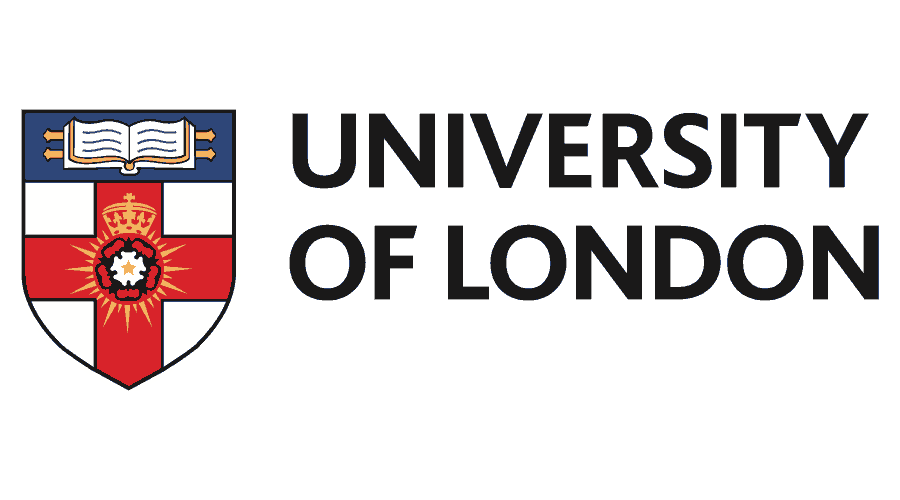Study in the UK for a World-Class Education









Quality of Teaching
UK universities prioritize teaching excellence, with dedicated faculty members who are experts in their respective fields.

Academic Excellence
The UK is home to some of the world's top universities, including Oxford, Cambridge, and Imperial College London.

Diverse Academic Options
Whether you're interested in traditional subjects like literature and history or emerging fields like data science and renewable energy

Cultural Diversity
Studying in the UK exposes you to a rich tapestry of cultures and perspectives. With students from all over the world, you'll have the opportunity to interact with people from diverse backgrounds, fostering cross-cultural understanding and enriching your academic experience.

Global Recognition
A degree from a UK university is highly respected worldwide and can open doors to exciting career opportunities both at home and abroad.

Historic and Vibrant Cities
From the bustling streets of London to the historic charm of Edinburgh, UK cities offer a vibrant backdrop for student life.
Start Your Studies Now: Intakes Available in the UK
The UK is one of the countries which come to mind while planning for overseas education. The UK stands in the 2nd position amongst the world’s most desirable and leading destinations for higher education, with four of its universities making to the top 10 among the best universities in the world.
International Students in Higher Education in the UK: A Fact Check
According to the UK’s Higher Education Statistical Agency (HESA), in 2018-19:
- There were a total of 485,645 international (non-UK) students studying in the UK
- 342,620 students came from outside non-European Union countries
- 17,760 non-UK Indian students enrolled in the first year of higher education
- There has been a steady increase in the number of Indian students in the UK
About 15% of the top Business Schools in the world, including Judge Business School (Cambridge University) and Said Business School (Oxford University), are in the UK. Here is a list of top-ranking business schools in the UK, as per the Financial Times Global MBA rankings 2020:
- London Business School
- University of Cambridge
- University of Oxford
- Warwick Business School
- Alliance Manchester Business School
- City, University of London, The Business School (formerly Cass)
- Imperial College Business School
- Durham University Business School
- University of Edinburgh Business School
Types of Master’s Degrees Offered
Taught Master’s
There are four main categories of taught programmes- Master of Arts (MA), Master of Science (MSc), Master of Business Administration (MBA) and Master of Engineering (MEng), with each lasting for 1-2 years.
Students need to attend weekly seminars, tutorials and lectures in taught programmes and are assessed on the basis of exams, dissertation or project.
Research Master’s
For a Research Master’s, students are expected to work on a schedule, submit a thesis by the end of their research and work under the supervision of a faculty advisor. PhD, Master of Science (MSc), Master of Philosophy (MPhil) and Master of Research (MRes) are some of the research degrees offered in the UK.
The best part about the UK universities is that, for MBA and Master’s programs, only 15 years of education is needed, which is equivalent to a three-year bachelor’s degree, unlike US and Canadian universities where usually 16 years of education is needed (equivalent to a 4-year bachelor’s degree)
Types of Undergraduate’s Degrees Offered
Owing to a 3-year bachelor’s degree offered by UK universities, the UK is a hit with undergraduate international applicants.
Apart from the 3-year bachelor’s degrees, the other types of undergraduate courses offered in the UK are:
- Joint or dual-hours undergraduate degrees as part of which students will get to study two different courses simultaneously
- Sandwiches courses – The duration of this course is 4 years out of which there is a one-year work placement related to the field of study
- There are also certain short undergraduate courses:
- Certificate of Higher Education (CertHE): One year full-time and two years part-time
- Diploma of Higher Education (DipHE): A 2-year full-time course
Cost of Studying
Study Program
Average Fee Per Year (in GBP Euros*)
Undergraduate courses
10,000 to 20,000 per annum
MS courses / MBA programs
13500-45000 per annum
PhD
15,000 to 24,000 per annum
*Note: all figures are indicative; PhD cost might vary as fully-funded options are also available in the UK
Why Study in UK
- Top Ranked Universities
- The United Kingdom is home to some of the best internationally acclaimed universities in the world such as Cambridge, Oxford, and University College London, which makes it the most preferred study abroad destination
- Students choose the UK as a study destination because its degrees/qualifications are internationally recognised
- A world-class education, remarkable work prospects and a good student work-life balance make it a popular choice for higher studies among international students
- Quality Education and Better Research Opportunities
- Universities in the UK are known for their emphasis on students gaining practical knowledge in their chosen field of study
- The universities promote small class sizes for each student to get equal access to all the required study-related facilities
- Students have the flexibility to choose from different subject modules offered by the Universities. The courses can be tailored to suit one’s interests, specialisation and career goals
- The research opportunities for students are of world-class quality. Universities in the UK receive regular funding for research from various government and private sources. High quality of education and emphasis on science & research make students graduating from the UK Universities, globally a top choice for corporations wanting to hire well-trained professionals
- Students study and work along with some of the best minds from various fields and industries, using the most advanced technologies in the world
- Qualify Sooner
- Pursuing a postgraduate course in the UK is relatively short when compared to the other parts of the world. For example, an MBA in the UK is usually of one-year duration, making it a cost-effective option for international students. It also gives students an opportunity to enter the job market sooner in comparison to the students studying in other countries
- Scholarships
- To promote international talent, the UK provides multiple scholarships such as The Chevening Scholarships, Euraxess UK, The Commonwealth Scholarships, The Royal Society Grants and the UK-China Research Partnership for PhD Studies, etc
- Enriched Living Experience
- The UK is a multicultural society with a diverse population which provides a homely environment to its pool of international students. Excellent healthcare facilities, widely varied cuisine, beautiful and globally acclaimed architecture, multiple cultural and sports events make study in the UK an enriching living experience.
- Post-study work rights
- The new UK Graduate Immigration Route announced in September 2019 now allows international aspirants like you holding a valid Tier 4 visa to stay, work, or look for work in the UK for a maximum of two years post completion of the study. This new Route comes into effect from the Summer 2021 intake
Planning to study abroad?
Get free 1-on-1 counselling with our experts
UK Russell group





Popular Universities





Business Schools in UK




- Our Top Admits
Studying abroad offers students a unique blend of academic and cultural experiences.
Jatin
Heriot watt university
Manit
university of Stirling
Varun
Heriot watt university
Vrindavasini
Birmingham University
- Testimonials
Studying abroad offers students a unique blend of academic and cultural experiences.

Jatish
Had an amazing experience at Edugen.They helped me from my course selection to my final process of mh study abroad journey,i would thank the whole team for putting in soo much efforts for me as well as for giving me so much motivation in all the situations. Sanjeev Sir and Surbhi Mam are nothing less then a blessing. I recently got my UK visa and i m soo happy. I got visa in just 4 days. And I recommend Edugen consultant for very smooth and faster study visa for students.

Vrindvasini
Birmingham University
One of the best consulting agencies in Delhi. The staff is extremely professional, hardworking and have assisted me throughout. The IELTS classes they provided helped me to achieve a considerable band. They have shown great patience and were always there attempting to clear my doubts at all times. Because of there constant support, the process went very smoothly without any hurdles. They always kept me updated about any progress that has happened. I am truly satisfied with there services as they keep it professional as well as organised for someone like me. I'm delighted to share that I have successfully obtained an UK student visa. I would recommend students to approach this agency if they aspire to study abroad. They will help you understand every thing that one needs to know before moving out and will not leave any child midway. They cater to individual needs and provide number of different options from which the person gets to choose. Pros and cons of these options will also be elaborated, so that one can make a sound choice. I will recommend everyone to approach Edugen without a doubt.

Varun
Heriot watt university
I had an incredible experience with the Edugen overseas education consultant office and IELTS coaching center. The staff there is truly amazing, not only for their professionalism but also for their kind and supportive nature. They go the extra mile to ensure your success. I highly recommend their services to anyone pursuing education abroad and preparing for the IELTS exam. Thanks to their guidance, I feel confident and well-prepared for my journey ahead and I am thrilled to share that I achieved an outstanding 8 band score in the reading section and an overall 7 band score in IELTS.

Manit
King's College London
If I could give 10 stars, I would. I am a student and I wanted to continue my studies abroad but I had no idea about how to start the process and had many questions in my mind, I was really confused and then my friend suggested me to talk with the consultants at EDUGEN, from that point onwards they have been helping me with everything. Their guidance and wisdom have been invaluable and everything till now have been a peace of cake for me. If you are looking for studying abroad and have some queries, Do yourself a favor and give them a visit!!
- Study abroad courses
Studying abroad offers students a unique blend of academic and cultural experiences.

Msc Public Health
The Master of Science (MSc) in Public Health is a popular postgraduate degree in the UK. The program typically takes one to two years to complete and covers topics such as epidemiology, health policy, and health promotion.

Law
Law is highly regarded, and students develop transferable skills like research, logical and analytical thinking, interpretation and explanation of critical subjects, drafting formal documents, and legal knowledge. Law students have clear postgraduate options such as LLM, LPC, and BPTC.

Civil Engineering
Civil engineering is a popular field of study and in the United Kingdom. The UK is home to several world-renowned universities that offer undergraduate and postgraduate programs in civil engineering.

Robotics
Robotics in the UK has a rich history and is rapidly evolving. The country is home to several renowned research institutions, universities, and companies, driving innovation in automation, artificial intelligence, and machine learning.
- Frequently Asked Questions
Studying abroad offers students a unique blend of academic and cultural experiences.
Language requirements for studying in the UK vary depending on the institution and program. For courses taught in English, international students are generally required to demonstrate proficiency in English through standardized tests such as the IELTS (International English Language Testing System) or TOEFL (Test of English as a Foreign Language). Minimum score requirements may vary by university and program, so it’s essential to check the specific requirements of your chosen institution.
To apply for a student visa (Tier 4 visa) to study in the UK, you’ll need to follow several steps. First, you must have an unconditional offer from a UK institution that is a licensed Tier 4 sponsor. Then, you’ll need to complete an online visa application form, pay the application fee, and schedule a biometric appointment at a visa application center. Additionally, you’ll need to provide supporting documents, including your passport, confirmation of acceptance for studies (CAS) from your institution, proof of funds to cover tuition fees and living expenses, and evidence of English language proficiency. It’s essential to apply for your visa well in advance of your intended start date, as processing times can vary.
Tuition fees for studying in the UK vary depending on the institution, program, and level of study. On average, undergraduate tuition fees for international students range from £10,000 to £30,000 per year, while postgraduate tuition fees can range from £11,000 to £35,000 per year. Living costs, including accommodation, food, transportation, and other expenses, vary depending on the location and lifestyle. On average, international students should budget between £12,000 to £15,000 per year for living expenses in the UK.
Yes, there are various scholarships and funding opportunities available for international students studying in the UK. These include scholarships offered by UK universities, government scholarships, and external funding sources. Some scholarships are merit-based, while others are need-based or targeted towards specific countries or fields of study. It’s advisable to research scholarship opportunities early and apply for them well in advance of your intended start date, as application deadlines and eligibility criteria may vary. Additionally, many universities offer financial aid and support services to help international students finance their studies in the UK.





